- Home
- Joel Goldman
No Way Out (2010) Page 5
No Way Out (2010) Read online
Page 5
Jimmy worked construction, but the recession had knocked the pins out from under builders. With forty hours a week hard to come by, he started going crazy and turning mean from long stretches with nothing at all. Peggy worked part-time at a nursing home, barely making enough to cover the cost of someone to look after the kids. They were three months behind on the mortgage, and she didn’t know what they were going to do or where they would go when the bank made good on its threat to foreclose.
Her husband had beat her and accused her of cheating on him, a charge she dismissed with a bitter laugh, but didn’t deny, saying who could blame her if she did, being married to him. Her lawyer got a restraining order against Jimmy when she filed for divorce, telling her that the piece of paper was about as much protection as a condom with a hole in it, but short of a shotgun, it was the best the law could do.
She wore no makeup. Her cheeks were sunken, her bloodshot eyes suspended above dark bags, and her unwashed hair hung loose around her thin face. Though disheveled, there was beauty behind her pain, features that in another time had turned heads. She trembled as she spoke, her party days, if there had been any, behind her. She was holding herself together with bubble gum and string.
“Why do you think your husband is the one who took Evan and Cara?” Lucy asked.
“Who else could have done it? He’s that hateful!”
“When did you discover that your children were missing?”
She sniffled and wiped her nose with a dish towel. “It was Saturday morning, almost two weeks ago. They was watching television, and I told them I had to run out to the store. I was only gone a few minutes. When I come back, they was gone. I ran all over the house, hollering, but they didn’t answer.”
She dissolved in tears, ducking her head, looking up at us. Lucy flinched for an instant, resisting the impulse to comfort her, not ready to sacrifice the objectivity she needed to decide whether to take the case. That decision depended on whether she thought Peggy might have had something to do with her kids’ disappearance. She wouldn’t be the first parent to kill her kids and beg for help to find who did it.
“Was this the first time you had left them home alone?” Lucy asked when Peggy stopped crying.
“I left them once or twice before. Just for a few minutes. Oh, I know everyone says they was young to be left alone, but Cara, she’s real responsible.”
Lucy nodded, meaning only that she had heard what Peggy said, but Peggy brightened, interpreting the gesture as one of forgiveness and understanding.
“I’m sure she is. Did you lock the doors before you left?”
“I know I did, not that it would make a difference. Jimmy’s got a key, and the kids would have let him in anyway. The police said there was no sign of forced entry.”
“What store did you go to?”
“The QuikTrip up on Independence Avenue. We was out of milk.”
“What have the police told you about their investigation?”
“Adrienne Nardelli is the detective in charge of the case. She says she talked to the neighbors but no one’s seen anything.”
“Have you talked to your neighbors? Sometimes they’ll tell you more than they’ll tell the police.”
She started crying again, wiping her face with the towel when she stopped.
“Them people have been so good to me. Ellen Koch, she lives across the street. She’s organized the volunteer searchers, and she’s talked to everyone and they all say they didn’t see nothing or nobody. The police are looking and my neighbors are looking, but nobody’s seen my babies. And Jimmy, he went to jail just so he wouldn’t have to tell what he did.”
“Why did you call me?”
“Ellen give me your number. She said she seen you on the news last spring when you found that little boy after his father kidnapped him.” She reached behind her, picking up an envelope from the kitchen counter, handing it to Lucy. “Ellen took up a collection. There’s nine hundred eighty-seven dollars in there. It’s all I can pay you.”
Lucy had made a splash six months ago in a custody case. The father, who had been denied custody because he was a drug addict, had taken the boy to Toronto. Lucy tracked them down, bringing the boy back and leaving the father in a Canadian jail. She picked up the envelope, ran her fingers across it, but didn’t look inside.
“Okay, Peggy. We’ll give it a shot.”
Adrienne Nardelli had accepted our involvement without enthusiasm, reluctantly admitting that she was nowhere on the case, adding that Quincy Carter had told her she would be sorry and warning us that we’d better make a liar out of him. We had made no more progress in a week than she had in two. Evan and Cara Martin had vanished, and their father was the only suspect.
Chapter Ten
Roni Chase’s office was behind me, one of four tenants in what used to be a Denny’s restaurant, the logo still visible in white letters painted on the asphalt parking lot. The owner of the building had gutted and subdivided it into Chase Bookkeeping, Payday Loans Today, New Life Chiropractic, and Andy’s Bail Bonds, each with its own entrance.
I hauled myself off the bench, leaving Peggy Martin’s ball up for grabs, certain that Lucy would catch it for now, and grabbed the one with Roni Chase’s name on it. I stopped in the parking lot, watching Roni through the plate-glass storefront window of her office. She was sitting at her desk, holding a pen in her right hand, twirling it from one finger to the next and talking to someone whose back was to me. He was wearing blue jeans and a denim jacket, leaning over the desk, hands planted, his head bobbing. I couldn’t see his face, but hers was set hard and tight. She pushed back from the desk when I stepped through the door, folding her arms across her chest and cocking her head toward me, signaling that they had company.
“You take walk-ins?” I asked, letting the door close, blocking the exit.
Her guest straightened and turned, arms loose at his sides, cool dark eyes taking my measure. He had close-cropped dyed blond hair, a natural brown chinstrap beard, and a pierced eyebrow. The T-shirt under his open jacket was stretched tight across his body. He was ripped, flexing his hands, balling them into fists, shaking them loose and ready. I put him at five-ten, one-eighty, mid twenties, willing and probably able.
Roni dipped her chin, the corners of her mouth curling into a reluctant smile. “Sure, why not. I’ll catch up to you later, Brett.”
He gave her a narrow look, jamming his hands into his coat pockets. “You remember what I told you,” he said to her.
“Yeah, like I haven’t heard it a million times before.”
“I mean it, Roni. I’m not buying your funeral dress yet. You keep this shit up, I’ll let the county bury you in a pine box in your goddamn underwear.”
She got up, came around to the front side of the desk, hands on her hips. “And let all the money you’ve been saving for my dress go to waste? I don’t think so.”
“Girl, you are out of your mind.”
I stepped aside, holding the door open for him. He hesitated as the wind blew in, fluttering papers on Roni’s desk, and gave both of us a last look, shaking his head, pointing at her, talking to me.
“I shit you not, dude. She is absolutely fucking out of her mind.”
He climbed into a Ford Fusion parked in front of Roni’s office, backed up, spun the wheel hard, and fishtailed toward the street, wheels spinning on loose gravel.
I looked around her office: maple desk and credenza, low-backed swivel chair, flat-screen computer monitor, printer on a stand, twin file cabinets, a fern in one corner, a ficus in another, and paintings of seascapes and meadows on the walls. Her mother’s office, not hers.
“Brett who?” I asked.
“Staley.”
“Let me guess. You and Brett have a history.”
She laughed, easy and relieved. “A lot of history. His family and mine.”
“He your boyfriend?”
“Depends on the day.”
“Is he a client too?”
She cocked her head, hesit
ating before taking a breath. “No, but I do work for his father, Nick. He has a little grocery on St. John. Brett works for him but not for much longer.”
“Another victim of the recession?”
“Yeah. When times were good, Nick bought a couple of rental properties, figured real estate was a safe investment for his retirement and the mortgage broker made him a sweet deal. That was when the banks would finance anyone with a pulse and a ten-dollar balance in their bank account. Then, when the economy soured, he used the rent money to keep the grocery going instead of paying the mortgages, and now he’s going to lose his store and the rental properties.”
“You think he’ll take it better than Frank did?”
“You can’t tell how anyone will take something like that. He’s an ex-Marine who still thinks he’s a drill sergeant and Brett’s one of his grunts.”
“Let me guess. Nothing Brett does is good enough for his old man. The harder he tries, the worse it gets. So he puts on the tough guy act to convince you and him that he’s a man.”
Her eyes popped, and her chin dropped. “How could you possibly know that?”
“My old man was a Marine. Rode my ass until one day I took a swing at him.”
“You hit your father?”
“In the mouth. Knocked him to his knees. I was eighteen and angry.”
“What happened?”
I let out a sigh. “He got a fat lip and I broke a knuckle, but I got his attention. He started cutting me some slack, and things smoothed out after that. I found out years later that he bragged to his buddies how his kid had tagged him. He was proud of me for not taking any more crap from him, even if he couldn’t tell me to my face.”
She shook her head. “I don’t know. I’m pretty sure if Brett hit his dad, his dad would be bragging to his buddies about how he broke every bone in Brett’s body.”
“Hey, I’m not recommending it. I’m just saying how it was for me. That stuff about your funeral dress. That about what happened at LC’s?”
She went back to her desk chair, motioning me to a pair of black leather chairs in front of the desk. They were the nicest furnishings in the office, Roni’s mother understanding that the customer came first. I sat opposite her. She ran one hand through her hair, took a deep breath, and let it out slowly, nodding her head.
“Yeah. Brett’s a romantic.”
“Romantic isn’t the word I’d use to describe him.”
She laughed. “I know, but he’s all hard muscle and soft heart. I think he was more scared than mad.”
“The woman I was with, her boyfriend got on me the same way Brett got on you.”
She sat up. “Got on you? Why? What did you do?”
“Left my gun at home.”
“That’s what I don’t get. Why do men always assume they have to save us?”
“That’s the way people think about the ones they love.”
“Oh, c’mon. It’s more than that. It’s the you’re the weaker sex so watch me flex my pecs bullshit mentality guys are born with. You saw the way Brett looked at you when you showed up.”
I nodded. “He lifted his leg a little bit.”
“Like you didn’t. Jeez, men are so pathetic. You should have seen yourself. You had a look on your face, eyes all bunched up, mouth tight like you were about to spit and couldn’t wait for Brett to start something.”
She was right. That’s what I’d done with the gangbangers from the bus, and I’d done it again with Brett. The first time, I knew it. The second time, I was oblivious, on autopilot.
“You don’t even know me,” she added. “And you were ready to throw down with someone half your age and twice as tough because you thought you had to save me. What is up with that?”
I shrugged. “We’ve all got a history.”
“Yeah, and who’s going to save us from that?”
Chapter Eleven
History comes with options. We can ignore it and repeat it. We can learn from it or revise it, changing winners into losers. It gives us opportunities and excuses, lifting us up or weighing us down. Though our history is as embedded in our DNA as the genes that make us tall, dark, and handsome or short, fat, and good company, it doesn’t have to be our destiny. The hard part is being able to tell the difference between being chosen and choosing.
Simon and Roni had told me the same thing: Let her save herself. But here I was anyway, unsure if she needed saving or, if she did, what she needed saving from. Whether I had come to her office because I was gallant or guilty, I was there, and she’d told her boyfriend to leave and asked me to stay.
“Maybe we’ll save each other,” I said.
She smiled. “It’s like I said yesterday. I saved your life, and now you owe me.”
“And I pay my debts in full. So, how’re you doing?”
Her face darkened, and her shoulders sagged. “I don’t know. I didn’t sleep so good last night. I kept seeing Marie lying there on the floor. She was always nice to me. And that stupid asshole Frank tried to trick me so he could kill me too. And he’d only known me my whole life! He was at my Communion, and he was going to kill me and you and your friend and LC. And for what? Because Marie pushed his buttons one too many times?”
She stared at me, her eyes filling, hands gripping the edge of the desk, demanding answers that wouldn’t tell her what she needed to know.
“If you want it to make sense, you won’t get past it because it never will.”
She sniffled, wiping her eyes and nose. “The other thing that gets me, the thing I keep seeing over and over is me shooting Frank.” She shook her head, eyebrows raised. “I didn’t hesitate. I just pulled the trigger. The really crazy part is that when I see it in my head, I’m watching me do it, like I’m having an out-of-body experience. And, I’m not sorry I shot him. I’m just amazed I did. Is that wrong? What does that make me?”
There are no rules for how to cope with shooting someone. Circumstances matter, whether it was premeditated aggression, self-defense, or the heat of the moment, but each person has to navigate through the shock, sorrow, and amazement that follow. Though the law will impose its judgment, Roni was the type for whom the personal verdict would matter most.
“No, it wasn’t wrong. It makes you someone who can be counted on. It makes you a survivor.”
“Maybe, but I like it better when the bad guy just gets voted off the island.”
“Kind of takes the TV out of reality TV.”
“Yeah, and now the TV stations won’t leave us alone. Same for the newspaper reporters. Grandma Lilly unplugged our phone and threatened to shoot the next one who came to the door.”
“Good for Grandma Lilly. All that will pass. The media is a movable beast. They’ll find someone else soon enough, and you’ll be forgotten.”
“Not soon enough to suit me. You can have my fifteen minutes of fame.”
“What have the police said about whether you’ll be charged?”
“Detective Carter said it’s up to the prosecuting attorney, but he didn’t think that I had anything to worry about on the shooting.”
I knew Carter well enough to know that he chose his words carefully. If he’d said she had nothing to worry about on the shooting, he didn’t mean she had nothing to worry about. Frank Crenshaw shot his wife with a stolen gun during a meeting with Roni, who returned the favor and shot him. Carter was leaving his options open, waiting to see where his investigation would take him.
“You should talk to a lawyer.”
“What for? Detective Carter said it was self-defense.”
“All the same. I can give you some names, make an introduction, if you change your mind. What do you hear about Crenshaw? How’s he doing?”
“He’s at Truman Medical Center. I went to see him last night, but a policeman was guarding his room and the nurse at the nurse’s station wouldn’t even let me go down the hall. I asked her how Frank was doing, and she said she couldn’t tell me anything because of privacy laws. On my way out, I ran into an
other nurse who knows my mom. She told me that she heard that the bullet didn’t hit bones or nerves. He lost a lot of blood, but it looks like he’s gonna be okay.”
“The cop is there to make sure Crenshaw doesn’t check out against medical advice before they can lock him up and to make sure you don’t shoot him again.”
She gave me a sour smile. “Very funny.”
“Don’t be bitter. The state is very particular about these things. You had your crack at killing Frank. Now the state wants its chance.”
“Yeah, that’s wild, isn’t it? Save a life to take a life.”
“Everybody has a job to do.”
She pointed to a stack of papers on her desk. “Tell me about it.”
“I’d rather you tell me about it. What were you doing for Frank Crenshaw besides keeping his books?”
“Trying to figure out a way to keep him afloat, but business had dropped too far off and, in this economy, it wasn’t going to come back soon enough. He’s like a lot of my clients. They aren’t perfect people, but they’ve worked hard all their lives and now they look around and it’s all gone because an economy they can’t begin to understand collapsed on their heads. Some of them, I don’t know how they’re going to survive.”
“How did Marie react when you told her how bad it was?”
“She was mad, not about the business so much as she was mad at Frank for not telling her sooner how bad it was.”
“You think she knew he had a gun?” I asked.
“I’d be surprised if she did. Frank wasn’t into guns.”
“I had a good look at Crenshaw. He seemed unhappy, but he didn’t strike me as homicidal. What were the three of you talking about before you got up from the table to go to the bathroom?”
“Marie kept asking me what else they could do to hold on to the business, and I told her there was nothing they could do, that Frank had tried everything.”
“What do you think set him off?
She shook her head. “He’d been under a lot of pressure since the first of the year, but it had gotten worse in the last couple of months. I had trouble getting him to focus, and he blew up at me a few times on the phone. Hung up on me twice. Even so, I never figured him to go nuts like that.”

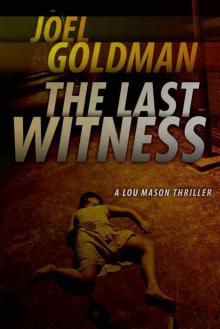 The last witness lm-2
The last witness lm-2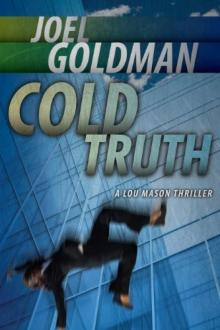 Cold Truth
Cold Truth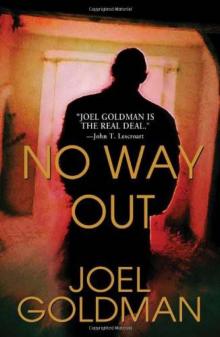 No Way Out (2010)
No Way Out (2010)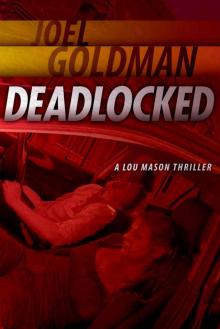 Deadlocked (Lou Mason Thrillers)
Deadlocked (Lou Mason Thrillers)![[Lou Mason 01.0] Motion to Kill Read online](http://i1.bookreadfree.com/i1/03/24/lou_mason_01_0_motion_to_kill_preview.jpg) [Lou Mason 01.0] Motion to Kill
[Lou Mason 01.0] Motion to Kill Final Judgment
Final Judgment Stone Cold
Stone Cold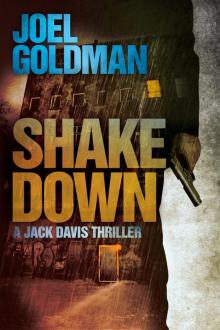 Shakedown
Shakedown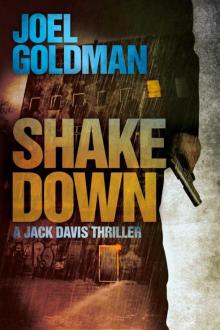 Shakedown jd-1
Shakedown jd-1 All Gone
All Gone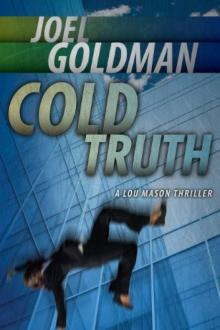 Cold truth lm-3
Cold truth lm-3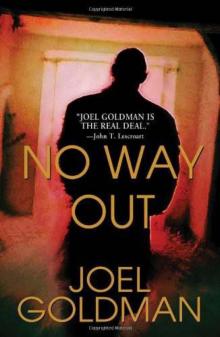 No way out jd-2
No way out jd-2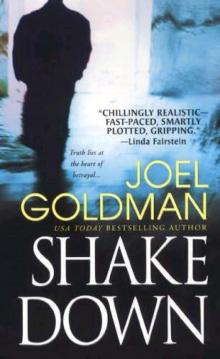 Jack Davis Mystery - 01 - Shakedown
Jack Davis Mystery - 01 - Shakedown Stone Cold as-1
Stone Cold as-1 Final judgment lm-5
Final judgment lm-5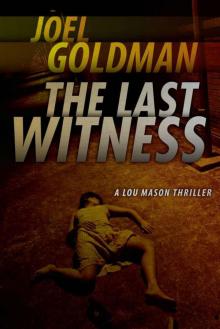 Lou Mason Mystery - 02 - The Last Witness
Lou Mason Mystery - 02 - The Last Witness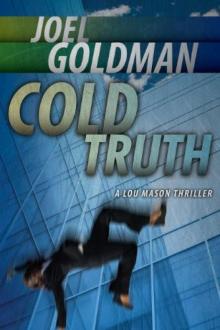 Lou Mason Mystery 03-Cold Truth
Lou Mason Mystery 03-Cold Truth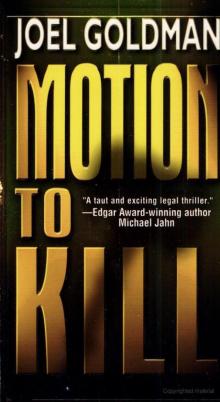 Motion to Kill
Motion to Kill Die, Lover, Die!
Die, Lover, Die!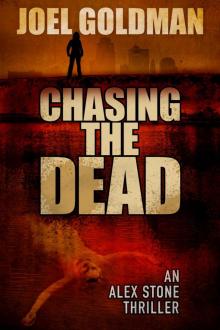 Chasing The Dead (An Alex Stone Thriller)
Chasing The Dead (An Alex Stone Thriller)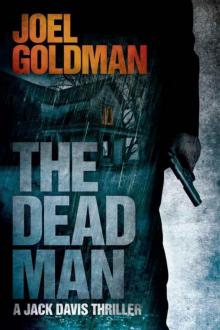 The Dead Man
The Dead Man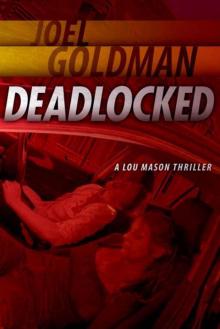 Deadlocked lm-4
Deadlocked lm-4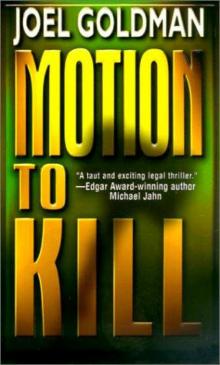 Lou Mason Mystery - 01 - Motion to Kill
Lou Mason Mystery - 01 - Motion to Kill Die, lover, die
Die, lover, die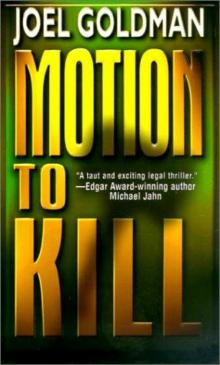 Motion to Kill lm-1
Motion to Kill lm-1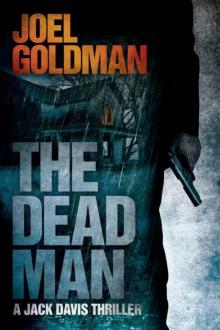 The Dead Man jd-3
The Dead Man jd-3